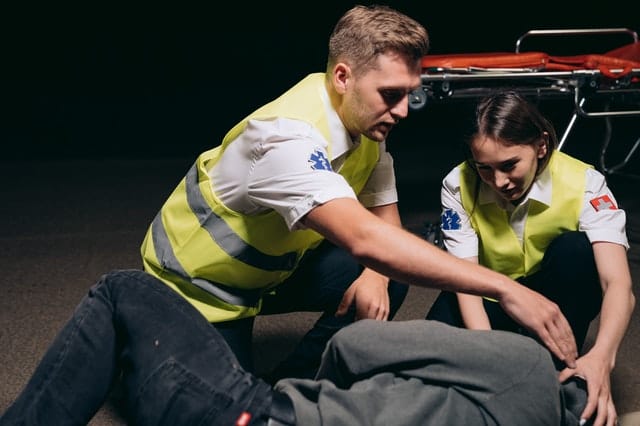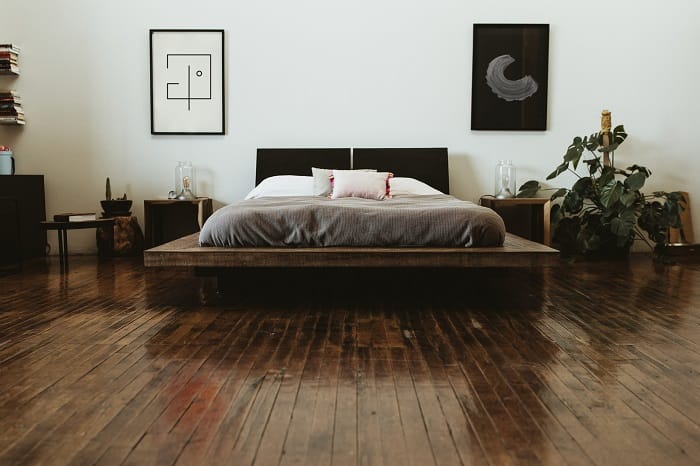As one of the providers of drug and alcohol rehab in the UK, Delamere Rehab may be the most suitable residential rehab option for those wanting to overcome and recover from an addiction.
Located in the northwest of England, in Cheshire, Delamere Rehab describes itself as the ‘new level’ of residential rehab, offering “pioneering, inspiring, and effective treatment experiences”.
This attitude, as well as the professional and supportive staff to support this, makes Delamere Rehab a valid option for many individuals struggling with addiction.
In addition, Delamere Rehab is also custom-built and set in a remote and calming environment.
This makes it especially effective for individuals overcoming addiction, as it allows them to get away from previous triggers, stressors, and other factors that may have contributed to their addiction, its severity, and the long-term effects that the individual may experience.
This web page is not Delamere Rehab, but aims to outline the benefits of this residential rehab option, the costs associated with this form of care, and the issues surrounding addiction in general.

Before considering if Delamere Rehab is the best option for you or someone you know, it is beneficial to have an understanding of what rehabilitation is – beyond being recommended to ‘treat’ and overcome addiction.
Addiction can never be cured, and many individuals who struggle with addiction are likely to experience some of the effects for the rest of their life.
The aim of drug and alcohol rehabilitation, therefore, is to help individuals who experience these negative effects (no matter the duration) and equip them with coping mechanisms and techniques to help them manage their addiction in the long term.
Many studies have found that residential rehab is extremely effective in these goals, but only in the instances in which the individual has been properly assessed and prepared for residing in these environments.
For example, a study from 2009 [1] found that residential rehab was only effective when the ‘arrangements for care’ were made before the individual entered the residential establishment in the first place.
This highlights the importance of the admissions process – something that will be covered later on this web page.

Addiction presents itself differently in every individual.
This is mainly due to the individual differences at play, but it also originates from the reason why an individual may have turned to addiction in the first place.
One of the most commonly thought-of reasons for an individual developing an addiction is stress, or as a coping mechanism for stressful events in their life.
This is not the only reason why an individual may develop an addiction, but is one of the most common.
Another reason that an individual may develop an addiction is due to peer pressure or partaking in drug consumption during social events.
This is a risky situation, as the physically addictive nature of some substances may make the individual struggle to overcome these cravings, leading to them consuming more and more of the substance, even after the social event is over or the peer pressure is no longer present.

As mentioned above, some substances are known as physically addictive substances.
This means that these substances alter the body’s chemistry, making it so that the individual becomes dependent on the drug to continue normal functioning.
The drugs that fall into this category include serious illegal drugs such as heroin (a well-known substance that is highly addictive) as well as alcohol – a drug that not many individuals consider to be so, and therefore make it far more dangerous.
As well as the general physical effects of consuming a harmful substance in the long-term, drugs may also physically affect an individual during the different processes of rehab.
For example, during a detox individuals must withdraw from the substance which can cause serious physical health problems.
Alcohol withdrawal syndrome [2] is one of the most common of these effects that individuals may experience when withdrawing from alcohol, and it can cause serious issues such as insomnia, seizures and delirium tremens.

In addition to the physical health effects of addiction, there are also many mental health effects of the different substances that an individual may be addicted to.
In some cases, individuals may also consider addiction itself to be a mental health issue, adding to the complexity of overcoming this during rehabilitation.
In fact, addiction is known to co-occur with many other mental health issues, the most common of these co-occurring disorders including:
This is why it is vital that individuals seek rehabilitation that focuses on both the physical and mental health impacts of addiction and aim to treat both throughout the course of the treatment.
This is known as dual diagnosis treatment.
Without the treatment of all of the effects of addiction, individuals are unlikely to make effective and efficient progress during their rehabilitation journey, and they are more likely to relapse in the future as not all present issues have been focussed on.

When an addiction is recognised in an individual – either by the individual themselves or by those around them – then it is vital that these individuals consider all of their options carefully, rather than just beginning a treatment programme that may not be beneficial for them in the long term.
Every individual will have different needs and requirements for their rehabilitation journey, and this should be reflected in their care.
For example, individuals with short-term and long-term addictions will have greatly varying needs, as well as the differences between the substances that these individuals are addicted to.
This is why it is always recommended that individuals seek professional advice from medical and psychological professionals in regard to the options available to them in their local area, in their county, or in the UK in general.

As mentioned above, every individual will have different needs and requirements when it comes to rehabilitation, and this can seem extremely daunting at the start of the individual’s journey, but some decisions can be made relatively early on, narrowing down choices, options, and the most suitable forms of care available.
One of the first decisions an individual can make is whether they will attend rehab as an inpatient or an outpatient.
These two forms of care are vastly different, but generally in the sense of when the individual takes part in their chosen form of care, rather than the actual content of the care itself.
For example, many treatments are available through both inpatient and outpatient care, though the frequency and regularity of these differing forms of care is the area that will vary the most.
Most studies into ‘inpatient vs outpatient’ care have found that each are effective when considering a variety of different personal difference factors, [3] including psychiatric issues, social support, and follow-up treatments available.
The following subheadings outline the key differences in greater detail.

Inpatient rehab, as mentioned above, takes place in a residential rehab centre (such as Delamere Rehab).
This means that the individual will take part in treatments and therapies on a regular basis.
Often, treatment programmes take up the majority of the individual’s schedule while they reside in one of these centres and they will receive around the clock care while they take part in these treatments.
In addition, individuals will also benefit from 24/7 access to medical professionals and medical interventions should they be required.
Inpatient care is generally most effective for individuals who have a long history of struggling with addiction, those who have tried and failed to recover previously, and those who are likely to experience serious effects as they recover from and overcome the effects of their addiction.

Outpatient care, on the other hand, does not take place so often or regularly.
Generally, individuals who choose to rehabilitate through outpatient methods will attend treatment programme sessions on a weekly or monthly basis.
In addition, this is generally carried out while the individual continues to reside at home or in the local area – they are not encouraged to remain in one treatment centre.
Though many of the treatments offered through outpatient rehab are the same as those offered in inpatient treatment centres, the frequency and regularity of care is the main point of difference, making this is a key part of the decision-making process when considering inpatient or outpatient care.
Outpatient care is often more suitable for individuals who perhaps have a shorter history of addiction, suffer from less serious effects, or for those for whom it is the first time that they have attempted to overcome their addiction.

Before an individual enters drug and alcohol rehabilitation – either inpatient or outpatient – it is important that they know that they are getting the most suitable and appropriate care for their individual case.
This is achieved through the honesty and openness of the individual themselves during the application process and admittance into a drug and alcohol treatment programme.
Generally, these initial assessments cover some of the key areas of an individual’s addiction and it is vital that the individual struggling with addiction is as honest and open as possible regarding their substance use in order to get the best suggestions.
Some examples of the types of questions asked are listed below:
By answering these questions (and additional information) honestly, individuals struggling with addiction will give the best possible picture of their situation and allow their addiction support workers to find the best hope for them.
Please be aware that these questions are only aimed to enable you to find the best help for you and will be managed in a confidential, friendly, and non-judgmental manner.

When it comes to paying for drug and alcohol rehabilitation, there are many different paths and options that an individual has access to.
One of the first things to consider is whether or not the individual has access to healthcare insurance.
This may be provided through the individual’s place of work, or it may be privately funded, but in either case it is important that the individual has ascertained whether or not the type of rehabilitation they are looking at is covered by their specific type of insurance policy.
This can be done by referring to the paperwork associated with the individual’s healthcare plan, or by contacting their healthcare provider directly.
Checking the individual’s policy is vital before beginning any type of care, rather than beginning care and worrying about funding it later.
If an individual does not have healthcare insurance, then there are many payment plans and rehabs can offer.
Get in touch with us today to find out how we can support you and your chosen rehabilitation treatment programmes – both in an inpatient setting as well as an outpatient setting.

Delamere Rehab, as mentioned in the introduction to this web page, is a specialised and tailored residential centre located in Cheshire, near to the village of Cuddington, Northwich.
As a custom-built facility, Delamere Rehab is set up to provide individuals with a comfortable and effective recovery programme, specialised to their needs and their progress within these programmes.
However, even within this specific residential centre, there are still many options that an individual can choose to tailor their experience of Delamere Rehab even further.
This includes the type of room that the individual opts for.
These increase in facilities available and range from ‘Executive’ to ‘Deluxe’ to ‘Signature Suites’.
All rooms include:
These different room types are further broken down in the following subheadings.

As described by Delamere Rehab, Executive rooms are ‘reminiscent of a boutique hotel’ and rooms include an ensuite bathroom, king-size bed, TV, writing desk, armchair and Wi-Fi.
All these rooms mentioned are private rooms, meaning that the individual will not be living with roommates – other individuals will not sleep in the same room and each individual is assigned their own room.
This means that individuals will have their own privacy, as well as having their own space in which to take time to themselves, work on ‘homework’ from their therapy sessions and/or treatment programmes, as well as simply have time to relax and unwind between and after treatment programme sessions.
An Executive room costs around £18,000 for a 28-day stay, or £25,000 for a 42-day programme.
Speak to a member of Rehab 4 Addiction’s support team or Delamere Rehab to work out how long you or someone you know may require to spend in this or another centre.

Introduced as recently as July 2023, the Deluxe room has all the same amenities as the Executive room, but with significantly more space.
The Deluxe rooms are described as ‘spacious and sophisticated’, and include a large living room area in which the individual can fully take advantage of the serenity and calmness of the centre and the area that surrounds it.
Through Delamere Rehab, the treatment programmes are designed to be intensive, which means that (although less time is spent in rehabilitation) there can be some implications to this process.
This means that individuals will be especially grateful for a large space in which to relax between and reflect after treatment programmes.
A Deluxe room costs £19,500 for the 28-day programme, while the 42-day programme costs £27,250.

Increasing in size and price, the Signature suites are the largest and most luxurious form of accommodation that Delamere Rehab offers.
Offering all the same amenities as the previous two options, Signature suites also upgrade to a super king-size bed, a private balcony with forest views, and a comfortable lounge area in addition.
These rooms cost £22,000 for a 28-day stay, and £31,000 for the 42-day stay.
Though many individuals may be unsure as to which of these accommodation types to choose, both Rehab 4 Addiction and Delamere Rehab will be happy to advise which will be most appropriate depending on your addiction, the effects it’s been having and your current living conditions.
Please be aware that all of these rooms and rates are correct at the time of writing and stays may be extended for set fees.

Though these stages have been mentioned briefly across this web page, it is still important to list them and explain them in further detail.
Often, understanding the stages involved in drug and alcohol rehab and taking the time to research what kinds of processes and treatments they may experience can help individuals gain a greater understanding of what form of rehabilitation may be most effective and beneficial for them.
The three stages of rehab are as follows and are covered across the following three subheadings.

As the essential first stage of an individual’s journey to recovery, detoxification is when the individual withdraws from the substance(s) that they are addicted to.
This in itself is a complex process as, depending on the substance(s) that the individual is addicted to, the process of withdrawal and its effects can be vastly different.
For example, substances such as cannabis and cocaine can be withdrawn from in a method known as ‘going cold turkey’ – the complete and sudden cessation of usage of the substance.
Though this is possible, it is always recommended to speak to with a medical professional about before beginning any form of detox.
Other substances, such as alcohol and heroin, require additional stages, often withdrawing in small stages or with a medical intervention.

This is the main part of the rehabilitation process and takes up the majority of an individual’s time within a drug and alcohol rehab.
Although every individual will have a different set of treatment options and therapies depending on their individual circumstances and differences, there are some therapies and treatments that are more common.
For example, Delamere Rehab prides itself on ‘holistic treatments’ – i.e., those that focus on treating the individual as a whole, most often achieved by combining therapy with an activity such as yoga, meditation, swimming, music or art.
These types of treatment are becoming more and more common as studies are being conducted into their usefulness, often citing that the holistic style of treatment is more likely to affect all areas of the individual’s life and, therefore, experience of recovery. [4]

As mentioned previously, all Delamere Rehab rooms include a 12 month aftercare package. meaning that individuals who choose to attend this rehab centre will be supported long after leaving.
This is true of most rehab centres, as aftercare is an essential way to maintain what the individual has learned during their time in rehab, as well as providing the individual with a way to continue their learning in both independent and dependent learning styles.
For example, individuals may be assigned an aftercare support officer, or they may opt for a more independent approach, taking part in mutual support group programmes such as Self-Management and Recovery Training (SMART) [5] – an independent therapy based on cognitive behavioural therapy (CBT) and motivational interviewing techniques.

To learn more about Delamere Rehab [6] or the different options available for rehabilitation in general, please do not hesitate to contact Rehab 4 Addiction today.
A member of our friendly and professional team will answer any questions that you have, direct you to the different options available for you or someone you know, as well as handling all enquiries in a confidential manner.
To get in touch with us, call uf for free on 0800 140 4690 today.
Together we can beat addiction.
[2] https://pubmed.ncbi.nlm.nih.gov/15053409/
[3] https://psycnet.apa.org/record/1993-42950-001
[4] https://pubmed.ncbi.nlm.nih.gov/38489833/
[5] https://psycnet.apa.org/record/2015-24833-002
[6]